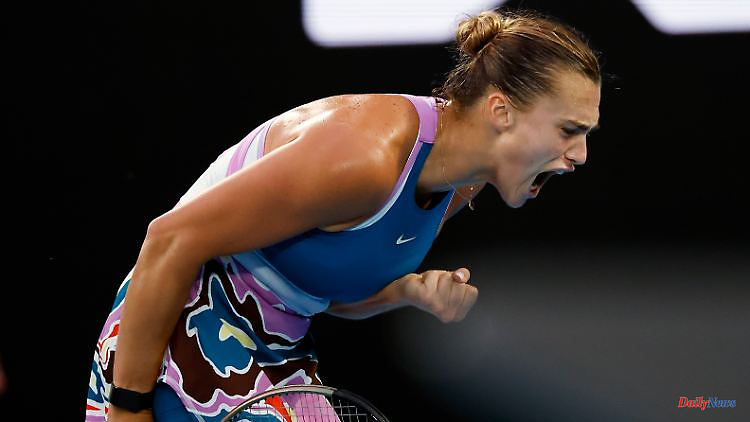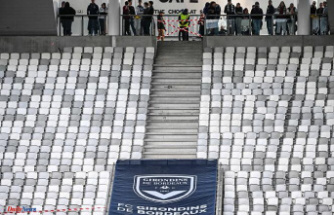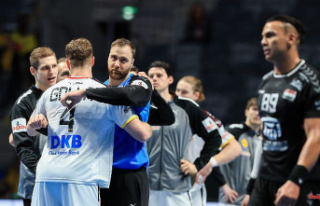Aryna Sabalenka of Belarus is the first neutral Grand Slam winner in history. After a thriller in the final, the 24-year-old wins the Australian Open in Melbourne. Kazakh Yelana Rybakina wins the first set, but then has to make room for the premiere.
Aryna Sabalenka collapsed to the floor in the raging Rod Laver Arena and cried with happiness. The 24-year-old has finally landed her long-awaited big coup and won the Australian Open. At 11:30 p.m. local time, she finally held the mighty silver cup in Melbourne, overwhelmed, kissed and hugged him. Sabalenka prevailed in a hard-fought and high-class final against Wimbledon champion Jelena Rybakina 4:6, 6:3, 6:4. The athlete, who hails from Belarus, becomes the first neutral player to win a major tournament. Since the Russian war of aggression, the signs of their homeland have also been banned from tennis.
"I'm still shaking," said Sabalenka, thanking her "crazy" team: "This trophy is more about you than me." Rybakina emphasized that she is already looking forward to returning next year: "I had goosebumps playing in this atmosphere." Sabalenka secured prize money of 1.95 million euros and jumped to second place in the world rankings. Rybakina can console herself with around one million and will first move into the top 10 of the WTA ranking. Born in Russia, she has been playing for Kazakhstan since 2018 and made her country's first Grand Slam triumph at Wimbledon.
"What a great final, she worked so hard for that," said national coach Barbara Rittner at Eurosport, referring to Sabalenka. It was refreshing to watch her, Boris Becker added: "She has more tennis quality than many players. You can also see her heart on the pitch." Sabalenka went into the long-awaited duel between two powerful women with the greatest possible self-confidence and the knowledge of her positive record against Rybakina. The Belarusian had won all three previous encounters - her opponent wanted to use the experience gained from her final triumph at Wimbledon.
And Rybakina succeeded, taking Sabalenka's service early and refilling it. Like her opponent, she served hard and then tried to take command from the baseline. Even a brief period of weakness in the first set didn't faze her. "She plays it so dry and humorless," said Rittner: "She plays much better than in the semifinals." And Sabalenka was the first player this year to lose a set. On the way to the final, the stoic Rybakina had beaten three Grand Slam winners in a row in the world number one Iga Swiatek from Poland, Latvian Jelena Ostapenko and Sabalenka's compatriot Wiktoria Asarenka. And also showed in the title match that she is mentally extremely strong.
But Sabalenka managed to break her opponent's momentum in the second set, she played big at times and equalized the set with an ace. Sabalenka kept his foot on the gas and continued to put Rybakina under pressure in the deciding set. She made the break to 4: 3 - and didn't let her triumph be taken away.












